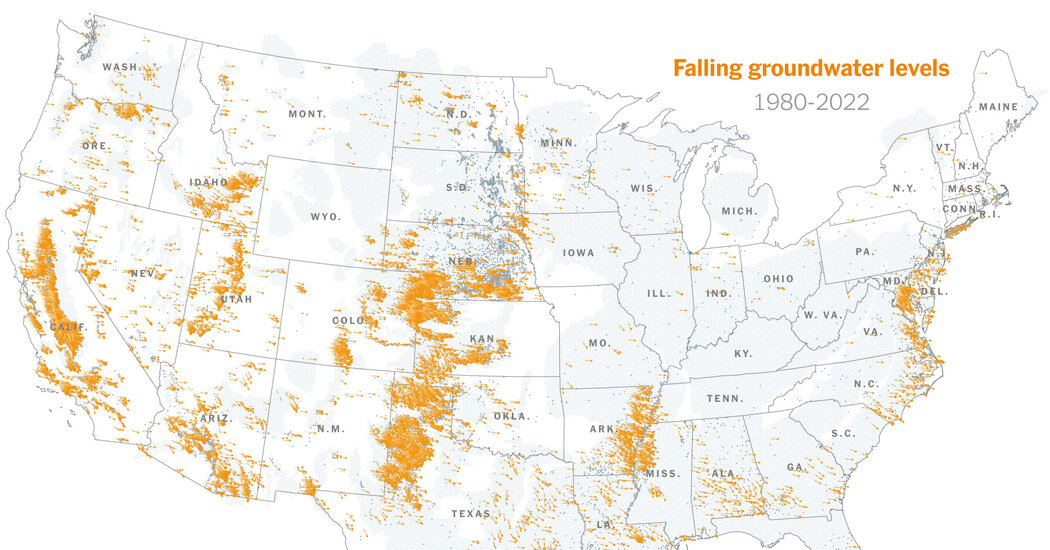Fun fact: there will be no tomorrow when the water runs dry
You have thousands of kilometres of coast; if you don’t dessalinate it’s because you don’t want to.
So far, desalination has not been a useful solution to the problem. Companies have been trying to create useful desalination plants for decades. The current process is expensive, inefficient, slow and creates toxic residuals. For these reasons, the current technology does not scale up very well at all.
This a really bad take. Seawater deal with RO is a marvel of efficiency, only 2-3 times above the thermodynamic limit of demixing water from salt. It does not really generate toxic waste like coal fired power plants, but does produce lots of brine with various organics (antiscalants, surfactants etc.) that are not that great. The key issue is water is very cheap from traditional sources (surface water and groundwater) and requires rather crude treatment to be usable, resulting in very low cost. Hence why desal is used in areas where they have no choice. If you don’t have surface/ground water source or brackish water source you are doing seawater deal or leave the area…not many choices. At least RO is electrified so it can use renewables but that does not really solve the much higher cost…or issue of brine generation, with zld have a set of it’s own issues costs…
Very good to know. Thank you for the updated education.
It does not really generate toxic waste like coal fired power plants
It generates all the waste associated with the electricity it uses, which is often from coal fired power plants…
Considering the area a desalination plant requires, fitting it with wind and solar would not pose a challenge.
By the same argument, replacing the coal fired power plant with wind and solar wouldn’t pose a challenge either.
The point is, you’ve got to compare apples to apples: either coal power vs. desalinization powered by coal, or renewables vs. desalinization powered by renewables. In every case, the pollution produced by the desalinization process (i.e., the brine etc.) is simply added to the pollution produced by whatever means was used to generate the power for it, which means @soEZ’s attempt to compare desalinization to power generation doesn’t make much sense.
A coal burning plant has a comparisable smaller base of implantation; deactivating the coal plant to have it replaced by a solar or a wind (if even possible) would hardly output the same energy.
By comparison, a desalination plant takes a large area, by the shore, where wind and solar are plentiful, so it can be fitted with such energy source from the start.
The brines can and should be channeled to harvest the salts in it. The salt is raw matter for chemical industry.
It’s amazing how quick we are to find problems to a promising solution but the moment extracting water from surface or underground sources becomes impossible or unfeaseable we will resort to those solutions.
With enough demand, enough money for R&D will show up to improve the technology.
But regardless the current costs, that did not stop Israel to source all their water from the sea from very early, as well as other countries have for regions where there isn’t enough drinking water available.
In my country, it’s used to supply our islands territories and even by some hotels for pool water.
And the problem with the brine has me scratching my head, as I’ve read sources where the process required chemical treatment of the water and others where it’s stated the process is entirely physical.
and how much fossil fuel does Israel use to achieve this?
I think they went nuclear on their power grifld.
that’s better than coal for sure
No argument on that
Thanks, ChatGPT
I am not using any form of AI or other assistance. I am just old and have a lot of experience writing. Have a look at my post history to see the consistency in my writing style, even when I’m ripping a conservative apart.
I realize I copy/pasted my last line to the beginning instead of cut/paste, so it looks absurd now that I look at it again. I will fix that now.
Okay fair, just flagged my brain for the repeated phrase at the beginning and end
When I re-read it after your comment, I could see why you thought that!
Would actually be kinda cool if the prevalence of chatgpt forced everyone to write in a more varied and interesting style to dodge the accusations :)
America does desalinate in it’s coastal regions. Increasing desalination is prohibitively expensive. Shipping water inland is preposterously expensive. Even if you spend the money, scaling up takes years or even decades.
There are reasons America, like nearly all other nations, gets a relatively small amount of it’s fresh water from desalination.
[…] Increasing desalination is prohibitively expensive. Shipping water inland is preposterously expensive. Even if you spend the money, scaling up takes years or even decades.
Just like oil and natural gas?
There are reasons America, like nearly all other nations, gets a relatively small amount of it’s fresh water from desalination.
The way desertification is advancing in California (there must be other places facing the same problem) there will be a tipping point where mass scale desalination will be implemented.
Just like oil and natural gas?
Yes, which both cost many orders of magnitude more than water right now. If water was dollars per gallon like fuel is, we’d be in an extremely bad spot for livability.
Orrr… a tipping point where the human population becomes wholly unsustainable and starts to tear itself apart in “The Water Wars”, as they’ll be called.
deleted by creator
It’s not that hard.
It isn’t profitable. And so nestle won’t do it until it is.
Desal itself isnt really that hard, its very similar tech to regular wastewater treatment. What it is though is energy intensive, because the desalinated water starts its life at the lowest altitude and must be pumped up network to be gravity fed like regular water sources. very energy intensive
deleted by creator
absolutely. most water systems are relatively efficient due to gravity doing most of the work but desal removes that advantage
Hear me out: we move people under sealevel.
Here is the rationale:
a) factories create wealth
b) [in order to create wealth] factories create jobs
c) jobs return taxes
d) taxes return money
e) money can be returned to factories to hold it in place
For water extraction, we only need to add a line where we state water is replenishable, another stating that is easy and cheap to extract and a third where we expand on how water is a good in constant demand, thus, easily marketable.
Desalination is not a question of “if” it should be established but a “when” one.
https://calmatters.org/environment/2022/10/desalination-plants-california/
They are building them.
Thank you!
America actually does do desalination in several locations along the California coast and is expanding.
A good start.
Like everything in life, it’s not that simple.
One thing that is simple, however, is googling the answer to this question before making an uninformed response.
There is a limit for how much water consumption can be reduced, how much water can be reused and how much preserved untouched.
It is actually a subject I actually find interesting. All the criticism put towards the technology could be as easily applied to the internal combustion engine: its inefficient, produces larges amounts of residues and is expensive to run.
There are several large scale operations already in place (Israel sources its water from the sea, as well as several other nations where drinking water is scarce) and even hotels use it to source water for swimming pools.
There is, of course, the problem of distribution but we’ve already invented pipelines, haven’t we? And a water pipeline bursting could cause floods but no great concern lasting environmental damage, unlike oil or liquified natural gas.
so you agree with me? it’s not simple. it’s not just because “you don’t want to”. desalinization is extremely technically challenging.
All the criticism put towards the technology could be as easily applied to the internal combustion engine: its inefficient, produces larges amounts of residues and is expensive to run.
This was an attempt at being sarcastic.
If we’re running a technology by all means obsolete (internal combustion engine) and do it overlooking its drawbacks running current technology for dessalination can very well follow the same reasoning.
I read a good deal of criticism towards dessalination regarding the disposal of the brine. That is a fair point but those brines could very well be reprocessed for minerals harvesting including lithium, which has great demand. Even by just harvesting the salt, we’d be getting an important resource.
There is, of course, the problem of distribution but we’ve already invented pipelines, haven’t we?
This is true and we already do it. Fresh water is distributed over huge distances using high pressure and volume. The infrastructure already exists.
And a water pipeline bursting could cause floods but no great concern lasting environmental damage, unlike oil or liquified natural gas.
I’ve lived where this happened once and it was not pretty. A low point of high density residencial area got flooded. Water reached somewhere around 80cm high. Damage to cars and ground stories, water distribution interrupted for 3 days. But no lasting damage.
And what do we do with all the salt?
Put it on fried potato
I’m going to be dense as I have no knowledge in this area, but can you just put it back in the ocean? I assume with sea levels rising the ocean is getting less salty so it wouldn’t be harmful as long as we spread it out/did it slowly?
Yes, but how it’s done is hard and expensive. If you just pump it into one spot you kill everything around with high salt concentrations. You can pump it far out to sea and disperse it over a large area, but that requires pipes going out to sea. The pipes would probably be made of metal, which salt water and metal don’t mix well, not to mention the brine in the pipe. You also need pumping stations along the pipe because it can’t perpetually slope down, and if it goes below sea level it needs to be pumped out.
Basically, it’s complicated and expensive and not as easy as just dumping it into the ocean.
Reprocess it for minerals harvesting, like lithium, or just evaporate it and keep the salt, which by itself is a resource for chemical industry.
If it were that easy then it wouldn’t be an issue.
I made that same observation some time back and the answer I got was: money.
Why spend the money to develop a technology to harvest a mineral from the sea with probably minimal to no impact to the environment when you can simply use already existing tech and just open a hole in the ground?
Desalination produces a massive pull on using more fossil fuels. It’s an emergency procedure. Not an end goal. Read a book.
deleted by creator
Well, put me in a red dress and pony tails and call me Shirley…
Haven’t we discovered other ways to harvest energy besides fossil fuels? Perhaps wind a solar might be an answer to that problem?
My own country is in the process of converting a former refinery into a green hydrogen plant and part of the conversion goes into installing a few gigawatts of power in solar and wind.
Couldn’t this same solution be used for desalination?
Wait till you learn about the water cycle.
It takes hundreds of years for groundwater to replenish. We are experiencing problems right now.
Sure, I never said anything about that, only commenting against the hyperbole that there will be “no tomorrow” when places run out.
There will still be tomorrows, people will just move elsewhere like they’ve done for thousands of years.
Problem is, there will be less and less elsewheres where people can still live within a hundred years or so.
Where you gonna move when people already live there and those areas are low too?
deleted by creator
Fuckin thank you.
These people are addicted to drama. Jfc. _
Thousands of years ago didn’t have desalination nor electricity… there’s a reason why they moved to fresh water inland.and before you jump there: desalination requires a fuck load of electricity that impacts with other issues.
Read a book.
…says the guy who clearly doesn’t understand the geologic water cycle.
Sir?
I see you posting and I’m still waiting for your proof or reasoning behind thinking there will be no tomorrow when some places lose ground water.
You guys are all smug af with your downvotes, but got absolutely nothing for facts beyond your provocative hyperbole.
Keep in mind I never said losing ground water wouldn’t suck and/or be catastrophic, only looking for some proof it will be “the end of tomorrow” as the upvoted dude with his provocative words stated so definitively.
I keep getting told to read a book or that I know nothing of history or geology, yet all of human history proves me fucking right so far, so I’ma need literally any scrap of evidence from fucking anyone who has something better than a shitty opinion alongside some clicks of a down arrow.
Tbf there very well could be no tomorrow
With climate change and large corporations like Nestlé sucking up all the water it can this will only get worse.
By the way large corporations and large agriculture farms are to blame for the most waste of water.
Also the amount of money spent on watering lawns and golf fucking courses are huge factors in this.
We need to put end to Nestlé and fuck lawns.
Promises promises.
Don’t threaten me with a good time
In general: bad.
But the lion’s share of that groundwater is going to agriculture, and much of it specifically to animal feed, so unlike with carbon emissions, this feels like the sort of environmental disaster that market forces are at least going to be somewhat responsive to; less groundwater -> spike in alfalfa prices -> spike in beef prices -> people eat less beef -> people use less groundwater.
Nah, the beef lobbies will just have the government increase subsidies. Obviously corporate profits are more important than the future of the human race.
Yeah but how long does that take, compared to how long the environmental destruction takes?
It sounds from the article like the environmental destruction has been going on for decades and that it’s already affecting crop output in some places.
DUSTBOWL II: Electric Boogaloo
California has areas that have sunk 8+ feet. This is because agriculture dug down past the first water table into the second to feed rich, water-hungry crops like almond trees.
It’s been worrisome for a long time, but bug ag had the ear of the feds so did what it wanted.
I thought that groundwater used in beef production exists in the water cycle and actuslly replenishes. Did I fall for a talking point?
That water would logically enter the typical water cycle, but ground water itself can take a long time to replenish. It seems to depend on the particular source, but in many cases it is functionally non renewable.
Once pumped out, it will evaporate, rain down, and eventually make its way in to the oceans, I assume. Desalination seems like it will eventually be the solution, but it’s a long way off.
Paywall.
https://archive.is/VjQuZ has the text. Even better, the beginning, which I presume to be one of these terrible scroll-to-advance animated presentations, has the animation removed.
I mean, data visualizations are important and personally I think they contribute to the article by showing aquifer depletion over time, but do you.
Also, I’ve never really appreciated the incessant need to whine about paywalls [edit: sorry, not directly addressed to you, I know you just provided a link]. Journalists and editors shouldn’t have to work for free or depend solely on ad revenue. I understand if you can’t afford it, but journalism is a job that already doesn’t pay very well. I assume you’d also like to get paid for your work.
If you insist on keeping the paywall then posting news and inviting other peoples’ opinions without allowing them access to the link is bad form, no?
The news is accessible, just not for free. Doesn’t stop it being good original reporting that should be shared. NYT does provide a limited number of free articles per month. If we only read and share free articles, then we’d miss out on a lot of very solid reporting or even miss the point of the reporting.
For example, earlier this month someone shared a free article that analyzed the NYT’s reporting on near-miss aircraft collisions at airports. Most people dismissed the article since the planes were missing by pretty large margins, but that’s because the actual story reported in the original article concerned overworked and understaffed air traffic controllers. The planes coming too close to each other is a byproduct of that, but that’s what people on Lemmy focused on because the secondary, free source, chose to focus on that more sensational topic.
None of this addresses the point:
Don’t share a pay walled article if you want discussion on it, the majority aren’t going to pay for it just to discuss it
Then why comment at all?
I’m not sharing it to discuss it. I’m sharing it to share the information contained within it and it’s worth reading in its entirety. The discussion is a byproduct of the forum on which I share it.
[Sarcasm] Fuckin’ poors wanting to know the news! You tell 'em!
Darkly apt and poetic.
the west coast is especially fucked.
there was never enough ground water and there never will be.
Central planes as well, there is an enormous amount of crop land that will no longer support farming.
It’s not like it’s getting zero rainfall, it’s just not getting enough to support its current levels of crop output; they were growing cereal crops in the Great Plains long before we figured out industrial-scale groundwater irrigation.
No, the western plains requires irrigation. Plains as a biome exist because rainfall is marginal.
Idk fam there were some huge rivers in California not that long ago. Arizona and Nevada are much more iffy.
rivers != ground water
the water table dispute has been going on since the early 1800s.
An arab country siphons resources from the US this time? How ironic.
Whatt the fuck
I’m grateful you folks are doing something to combat the rising water levels.
^(/s just in case)^
Plenty of groundwater in New Zealand, once the only economic class of people our society has agreed matters (or we’d stop them) have finished sucking us dry in every conceivable way.
Lol, it’s nice to see nothing has changed in 20 years. Good job conservatives.
I mean, the Democrats haven’t done fuck all better either. California and other blue states haven’t done much better. We just love growing water hungry crops on deserts. It’s insane.
I didn’t say Republicans, I said conservatives. That includes a majority of the Democratic party.
I swear it isn’t possible to roll my eyes hard enough when people call Democrats communists… It’s like ok I get that you don’t even know what a communist is and you’re just parroting a propagandist, but most Democrats aren’t even socialist they’re mostly center-right conservatives…
But muh wine and blueberries taste good in rocky soil :3
Ok idea: any town that is willing to give up land for solar power can earmark 90% of the power from it to run pumps and desalination to get them water.
And for the other 90% of the country not within 100 miles of a coast?
Maybe there will be a nice sale on “Population: 0” signs to plant at the town borders.
Can someone ELI5 where the water actually goes when it’s used? It evaporates and goes somewhere else, right? So the drier one place gets, the more wet a different place needs to get because the earth is a closed system.
So where does water from the US go when it’s used and/or evaporated?
It ends up in the oceans, to answer you simply.
I work in the water industry, not specifically in water resources but hey. The issue we have is the rate at which we’re abstracting water from ground sources. In UK, the statistic I often hear is that it takes around 300 years for rain to soak down and join the water table.
300 years ago, the only below ground abstraction would have been people pulling buckets out of wells. Also it wasn’t like everyone had a well but their house either. Now we abstract millions of litres from a single borehole everyday.
To answer your question about where it goes, most waste water is released into the oceans. So we’re taking clean fresh water that on some cases has been moving down through the earth for thousands of years and discharging it into the oceans.
Groundwater is water that has collected at some point. Lake, aquifer, whatever. Over X many years rain has pooled in this spot.
If there is X amount of rain coming in each year and you use less than that, by sending it on down the river/whatever no worries. (as long as you’re not dumping things in the river that are gonna suck for people downriver.
If you use more than that, well there’s going to be less water in the groundwater next year. Also the people downriver probably don’t get as much water, so they’re groundwater will also probably be lessened if they don’t cut back.
Groundwater tends to be millions upon millions of gallons. It takes a while to use up, especially since it’s being replenished occasionally.
But if you’re using more than is coming in it doesn’t matter that it will “eventually” come back around. At some point there’s going to be a dry spot in the loop where previously there’s been a water deposit.
Ground water is largely used to water crops. As an example, massive amounts of food is grown in California using California ground water. That food (containing said water) is then shipped all over the country and to other nations. It’s exported in the form of produce.
https://newspark.news/domestic/the-ogallala-aquifer-a-case-against-capitalism/
Here’s an article on the ogalala
That’s sort of a shitty premise because the current system isn’t capitalist in that there’s no exchange of capital for that water. If users needed to pay for what they used, it would no longer be economical to exploit the aquifer and those users would go somewhere else. That’s kind of the point of a capitalist system: using money to efficiently allocate production.
Currently the government is using public assets (aquifer) to support otherwise unsustainable jobs, which has more flavors of socialism than capitalism.
You have it backwards . The water is an input to the agriculture meaning the fact that the capitalist system sees sees it as an externality gives it immense exchange value which promotes exploitation of the aquifer for profits. The point of capitalism is to reap profits and if you still think the market is an efficient way of allocating resources, you have a current housing crisis, military industrial complex, multiple water crises and climate change to read up on.
One of the many points of socialism is to allocate resources based on need. Declaring unsustainable jobs as a feature of socialism is incredibly ignorant considering our current paradigm of the gig economy, decaying infrastructure, wealth disparity, perpetual subsidies to fossil fuels, and war.
It’s mine. I own it.
Removed by mod
Wow you sound like a dumb asshole
deleted by creator
Removed by mod
















